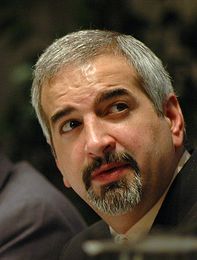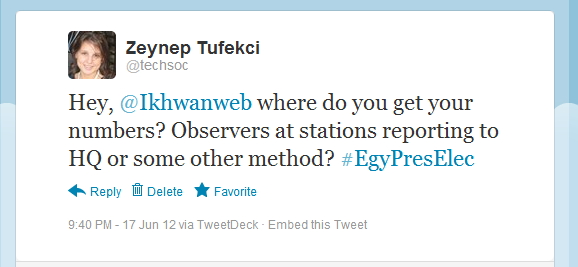 When heroes die, the institutions they represent sometimes feel driven to turn an avoidable tragedy into a final act of heroism. That’s what happened to Pat Tillman in Afghanistan. Did the New York Times journalist, Anthony Shadid, suffer the same fate?
When heroes die, the institutions they represent sometimes feel driven to turn an avoidable tragedy into a final act of heroism. That’s what happened to Pat Tillman in Afghanistan. Did the New York Times journalist, Anthony Shadid, suffer the same fate?
Shortly after his death in Syria, the Times’ executive editor, Jill Abramson sent an email to the paper’s newsroom saying:
Anthony died as he lived — determined to bear witness to the transformation sweeping the Middle East and to testify to the suffering of people caught between government oppression and opposition forces.
The circumstances of Shadid’s death are now being questioned by his cousin, Ed Shadid, a physician in Oklahoma City.
In a speech delivered to the American-Arab Anti-Discrimination Committee’s convention on Saturday, Ed said that in his final phone conversation with his wife, Nada Bakri, Anthony said: “if anything happens to me I want the world to know the New York Times killed me.”
Ed said that in spite of being recently advised that it was unsafe for Anthony and his companion to enter Syria, he was nevertheless sent on the assignment.
According to Ed, a Times security consultant reviewed a plan to infiltrate Anthony and his photographer Tyler Hicks across the border between Turkey and Syria in December 2011, but rejected it as too dangerous. “There was a security advisor who said, in no uncertain terms, ‘You are forbidden to enter Syria,'” Ed says. “So Anthony wrote an email to Tyler Hicks and says, ‘Hey man, it’s off. We’re not allowed to go.'” But roughly six weeks later, Ed says, Anthony’s editors reversed course and asked him to go anyway.
“The situation was worse on the ground than it had been in December,” Ed says. “The only thing that had changed was that CNN had gained access to [the rebel stronghold] Idlid. My understanding is that CNN gaining access bothered his editors.”
Anthony further expressed his concern about the challenges involved in getting into Syria but didn’t get support from his editors.
He asked for camping equipment to bring along on the journey through the mountainous border, Ed says, but his editors said no. When the 43-year-old reporter complained about the physical demands of the journey, Ed says, Times foreign editor Joseph Kahn responded, “It sounds like you’re going to get a lot of exercise on this assignment.”
Was what Kahn described as a lot of exercise, enough physical stress to give Shadid a heart attack?
The New York Times claims that Shadid died from an asthma attack but his cousin now asks why the autopsy results — which should have revealed elevated antibody and allergen levels — have never been released.
The emphasis on asthma comes from Hicks, who wrote that Anthony sustained increasingly severe allergic reactions to the horses they travelled with. But according to Ed, Anthony took his young daughter to horseriding lessons once a week without any adverse reactions. “They put out a story that Anthony Shadid died from asthma — according to who? Dr. Tyler Hicks?” Ed says Hicks’ account of Anthony’s final moments — he “stopped and leaned against a large boulder [and] collapsed onto the ground…already unconscious and [not] breathing” — is much more consistent with a heart attack than an asthma attack. He also says an autopsy was performed on Anthony’s body in Turkey, and wonders why he hasn’t seen the results. “We don’t have them,” he says.
New York Times spokesperson Eileen Murphy told Politico:
With respect, we disagree with Ed Shadid’s version of the facts. The Times does not pressure reporters to go into combat zones. Anthony was an experienced, motivated correspondent. He decided whether, how and when to enter Syria, and was told by his editors, including on the day of the trip, that he should not make the trip if he felt it was not advisable for any reason.
When asked repeatedly by Gawker whether a security consultant had rejected the Syria trip in December, Murphy declined to comment. Kahn didn’t return a phone call.
The New York Times has yet to cover this story on its own pages or offer an explanation about why Shadid’s autopsy results have never been shown to his family.


